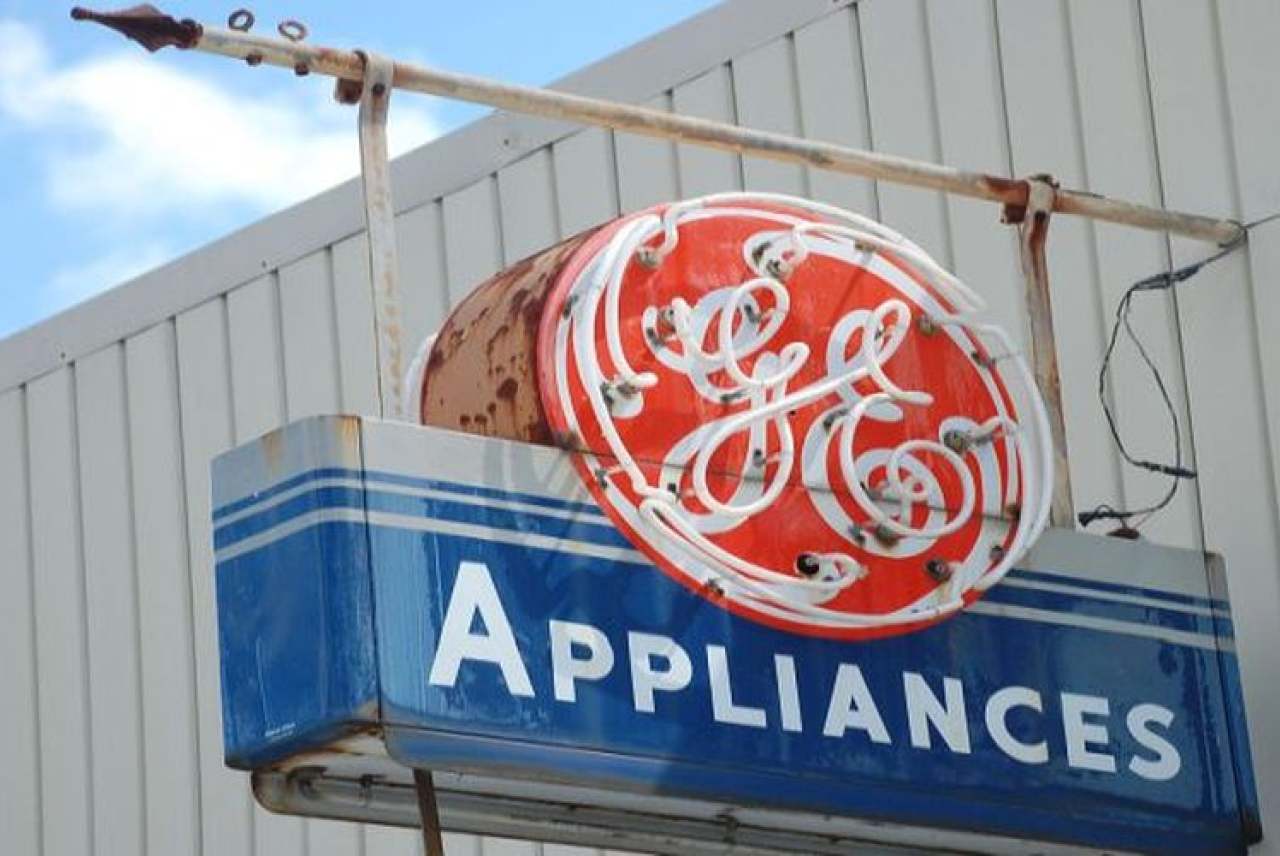General Electric (GE) is an American multinational company that offers products and services including aircraft engines, power generation, oil and gas production equipment, medical imaging and industrial products.
In 2016 it sold GE Capital and, in 2017, it was reported that it was looking to sell its GE Lighting business.
GE was incorporated in 1892 after Thomas Edison’s company Edison General Electric and a competitor merged. Edison patented the first incandescent electric lamp light bulb in 1878.
According to GE’s website, “several of Edison’s early business offerings are still part of GE today, including lighting, transportation, industrial products, power transmission, and medical equipment.”
Champion tax dodger
GE has attracted many criticisms due to its tax avoidance. Citizens for Tax Justice described it as “champion tax dodger” after it released its Annual Report which revealed it had paid a total 0.9% federal income tax rate in 2015.
GE, the NHS and lost tax revenue
In 2016, The Independent reported on an investigation into GE Healthcare – one of the UK NHS’ largest suppliers of equipment and testing services. The company has been supplying the NHS since 2003 when it bought British multinational company Nycomed Amersham.
At the time of the investigation, the company was headquartered in Buckinghamshire and the Independent revealed that the company had “received more money back in tax benefits over the past 12 years than it has paid in, with the taxpayer appearing to be missing out on millions of pounds a year in lost revenues.”
Environmental damage and taxpayer subsidies
In January 2016, an article on the International Business Times website reported that the state of Massachusetts had offered GE between US$120 million and US$145 million in taxpayer subsidies to move its corporate headquarters from Connecticut to Boston.
The article criticised Massachusetts because at the same time GE was opposing plans to clean up carcinogens which it had allowed to leak into the Housatonic River in a historical incident. The report said that the Massachusetts governor, Charlie Baker, did not appear to have made the subsidies contingent on GE fixing the river.
Lobbying
Lobbying by GE has also attracted criticism, with OpenSecrets.org reporting that, in 2015, it spent $21.8 million on lobbying in the US. For the same time period it is reported to have spent around€5.5 million on lobbying in the EU.
It is also currently a member of the following lobbying groups: World Economic Forum, National Foreign Trade Council, US Council for International Business, National Association of Manufacturers and Institute of International Finance, to name but a few.
GE and Fukushima
Established in 2007, GE Hitachi is a global nuclear alliance providing services to the nuclear industry. In 2014, it was reported that GE Hitachi had agreed to pay $2.7 million to resolve allegations that it made false claims to U.S. regulators about a nuclear reactor component.
Following the Fukushima nuclear power disaster, Greenpeace called on General Electric, Hitachi and Toshiba, which designed, built and serviced the reactors, to pay compensation for the cost of the reactors’ failures.
In July 2016, a Japanese court turned down a class action lawsuit seeking damages from the companies over the disaster. About 3,800 claimants in the suit, hailing from Japan and 32 other countries including the United States, Germany and South Korea, had sought largely symbolic compensation.
The article stated that “The plaintiffs had alleged that the companies failed to make necessary safety updates to the Fukushima reactors, swamped on March 11, 2011 by a magnitude 9.0 earthquake-sparked tsunami that lead to the worst nuclear accident since Chernobyl in 1986.”
Trump and Jeff Immelt
Jeff Immelt, the CEO of GE, is a member of President Trump’s manufacturing council. In April he told US news channel CNN that he tries to stay out of politics – but he’s found it necessary to speak out against some of President Trump’s policies.
Immelt explained why he has come out against Trump’s travel ban, his position on climate change, and his decision to build a border wall with Mexico. “I think we’re cowards if we don’t take a position occasionally on those things that are really consistent with what our mission is and where our people stand,” Immelt told CNN’s Fareed Zakaria.
Immelt said he didn’t disagree with everything the president was doing. “In many ways, I agree exactly with what Trump is doing,” he said. He referenced infrastructure spending and the White House’s promise to pursue tax reform and regulatory reform.

